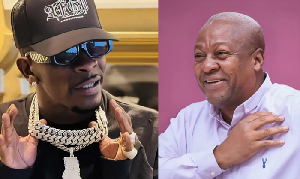In this segment of my running rant, we will do some law. Take it easy. Law is mostly logic, and I promise to break it down.
I have often been invited to discuss the ethical problems created by corruption. My position has been simple: Forget ethics. Forget sin. Forget wrong. Forget morals. CORRUPTION IS A CRIME. It is as much a crime as stealing or robbery or rape or murder. When we reduce corruption to a discussion of ethics, we allow room for relativism and arguments on standards. Forget all of that. If the corrupt are caught, put them before court, and have them punished.
Ours is probably the only Constitution in the world that states the eradication of corruption as in ideal to be achieved by the State. That Constitution also provides for the establishment of the Commission on Human Rights and Administrative Justice (“CHRAJ”) to “investigate complaints of… corruption” and “investigate all instances of alleged or suspected corruption and the misappropriation of public monies…”
We therefore take our corruption so very seriously that it is a constitutional matter! In our Criminal Offences Act, Corruption of or by a public officer is a crime. People of Ghana, hear this. Although our Constitution speaks of eradicating corruption, corruption is only a crime if it is committed by or of a public officer.
In effect, corruption between private people is not a crime. Thus, a referee who takes a bribe from a football team to influence the results of a football game may be fired by the GFA, but he cannot go to jail for it because he is not a public officer. This has to change, immediately!
Further, Corruption is only a misdemeanour, the lowest category of crimes. It is not even considered a felony. Technically, misdemeanours attract a maximum punishment of 3 years imprisonment. Thankfully, special provision is made that increases the maximum imprisonment to 25 years.
Corruption occurs where in respect of public office duties; a public officer agrees to permit his conduct to be influenced by a gift, or promise or prospect of something of value. Both the giver and receiver are guilty of the crime.
In that vein, it is also a crime to make a payment to a person who is not yet a public officer, in the expectation that he will or may become one. In other words, prepaid bribes amount to corruption.
Post-paid bribes also amount to corruption. Thus where after a public officer does an act, he secretly accepts a payment for personal gain, he is presumed to have acted corruptly before doing the act, unless the contrary is shown.
Significantly, our law specifically provides that it is criminal for a “judicial officer” (e.g. a judge) to offer or agree with another person as to any judgment which he will or will not give as a judicial officer.
There is also the crime of Extortion, which is committed where a public officer, in the course of his office, demands or obtains from another person, money or any other thing of value that he knows he is not lawfully authorized to demand or obtain.
What am I saying? Stealing is a crime. Corruption is a crime. Extortion is a crime.
Specifically, the corrupt promise by a judge is a crime. If a thief is caught on CCTV stealing, he should go to jail. Why should it be any different if a public officer, specifically, a judge, caught on video engaged in corruption or extortion?
Opinions of Tuesday, 15 September 2015
Columnist: Ace Ankomah















